New face of Milwaukee's immigrants found in church with multiple languages, one mission
The Rev. Kasongo Gui Kabeo is a busy man.
He takes dozens of calls every week, the voices on the phone asking for advice or assistance. Some are newly arrived immigrants from Africa needing to make doctor’s appointments or enroll children in school. Others are Milwaukee factory managers looking to fill jobs.
If needed, Gui heads to O'Hare International Airport in Chicago to pick up an immigrant family. He welcomes them into his home, provides clothes, meals and a basement apartment. He takes them to get drivers’ licenses or to meet with attorneys.
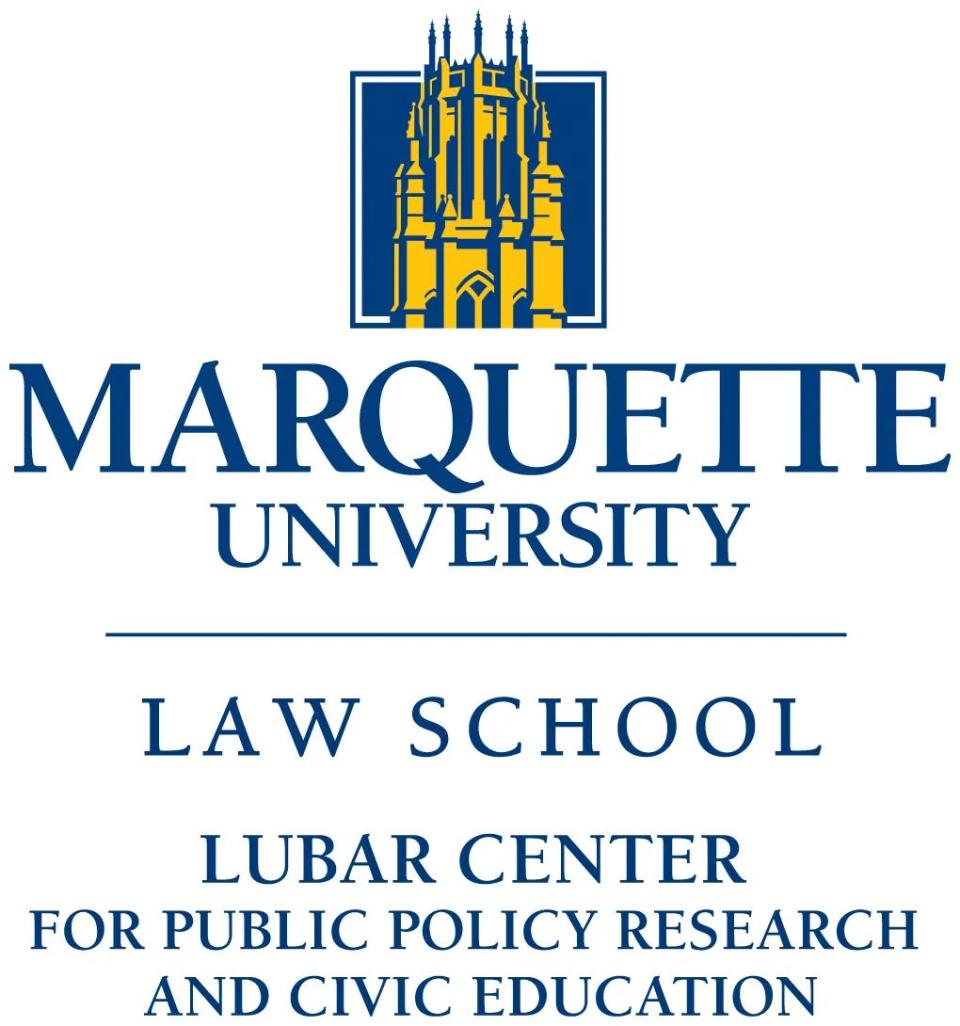
He begins each week with an energetic Sunday afternoon service at Benediction Lutheran Church on Milwaukee’s northwest side, delivering a rousing sermon in English while his wife, Leah, interprets in French. Musicians sing in Swahili and Lingala; church members dance and clap.
In his office, a reminder of his motivation is pinned to a bulletin board. It’s a photo from 10 years ago, when the church handed out backpacks for free. Many of the kids pictured are now in college. Some have graduated and are building successful lives. One, Gui says beaming, is a doctor.
“It has been a joy to see what God has done with us,” he said.
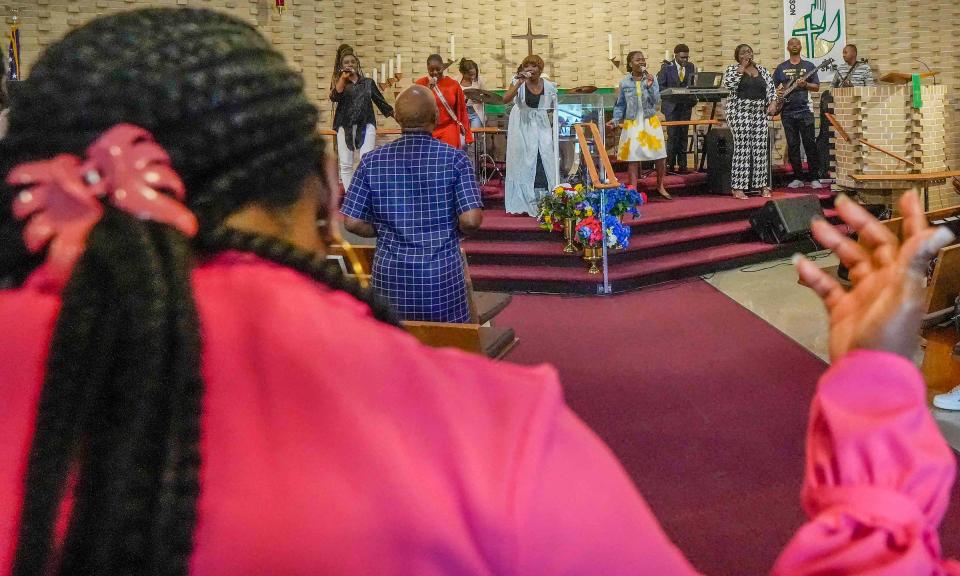
Gui came to the U.S. in 2000, fleeing civil war in the Democratic Republic of the Congo. He is an anchor of Milwaukee’s growing and vibrant African community. He has watched families demonstrate remarkable upward mobility, arriving in the U.S. with empty pockets and a short time later buying cars and then homes, making sure their children are educated and moving ahead.
Benediction Lutheran Church, where Gui’s ministry is based, also offers services in English, German and Hmong. It’s a microcosm of Milwaukee’s evolving immigration story.
Neighborhoods that European immigrants once called home have become enclaves of Mexican and Burmese and Hmong residents. Milwaukee's immigrants work in meatpacking and medicine, financial analysis and academia. The city's most famous resident, NBA star Giannis Antetokounmpo, was born in Greece to Nigerian parents.
Against this backdrop, the Lubar Center for Public Policy Research and Civic Education at Marquette University's Law School undertook a deep dive into Milwaukee's immigration data. Two broad takeaways emerge.
The first is that while Latin America — Mexico in particular — are the primary source of immigrants, today's newcomers truly come from around the globe. And although the metro area understandably celebrates its European heritage, immigrants from that part of the world now account for just 16% of the total, and most of those are from Eastern Europe, the Lubar Center report said.
The second is that with declining birthrates and more people moving out of the metro area than moving into it, international immigration is the main ingredient for metro Milwaukee to have any hope of growing and prospering. Immigration already is responsible for the modest 19,000-resident growth metro Milwaukee did see from 2010 to 2019, the Lubar report said.
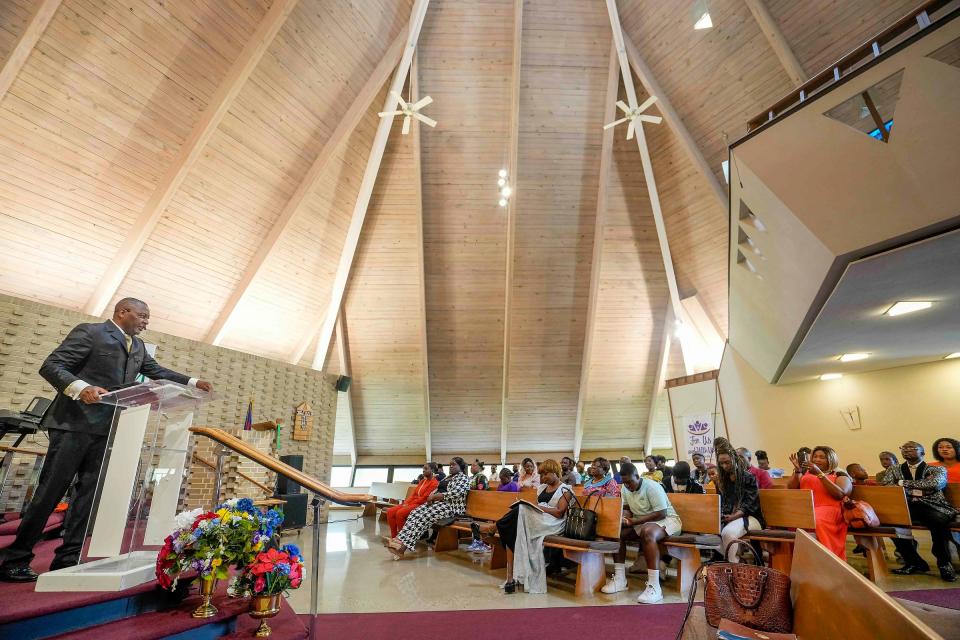
"Without the influx of immigrants, the metro’s population would have shrunk considerably, with serious implications for the region’s economy," wrote Mike Gousha, senior advisor in law and public policy, and John Johnson, research fellow.
All of this presents a challenge given the incendiary nature of U.S. politics.
Earlier this month, Republican presidential frontrunner Donald Trump proposed harsh measures to deal with immigrants, ranging from suspending the nation’s refugee program to blocking visas of anyone with ideological disagreements. At the same time, local businesses, especially manufacturers, consistently express the need for more workers, and routinely hire immigrants to fill their positions.
For the people Gui serves, it's a simple equation.
“We came here looking for a better life, and we have to work hard for it,” Gui said.
Immigrant ministries breathed 'new life' into the church
Before Benediction Lutheran Church added its Hmong ministry in 2003 — and its African ministry in 2006 — membership had been declining since the 1970s.
Located on Milwaukee’s northwest side at West Fond du Lac Avenue and West Silver Spring Drive, it had drawn people leaving the central city or moving closer to town from farming communities. But like so many mainstream churches struggling with changes in demographic and worship patterns, Benediction had lost about 800 members over two decades by the time the Rev. Don Hougard arrived in the mid-90s as pastor.
By the turn of the millennium, Hougard noticed the church’s neighbors were increasingly Hmong families. Benediction reached out, started a Hmong-language service, and ultimately sent two Hmong men to the seminary to be trained as pastors.
Some adjustment was necessary. Joint services took longer, and longtime members at times understood nothing. But relationships grew. An annual egg roll sale became the best-performing annual fundraiser. Today, Hmong members are a cherished and integral part of the church, Hougard said, and have kept it afloat.
“Right now, our church could not imagine our congregation without our Hmong members,” he said. “To a church that was declining for many years, it brought new life.”
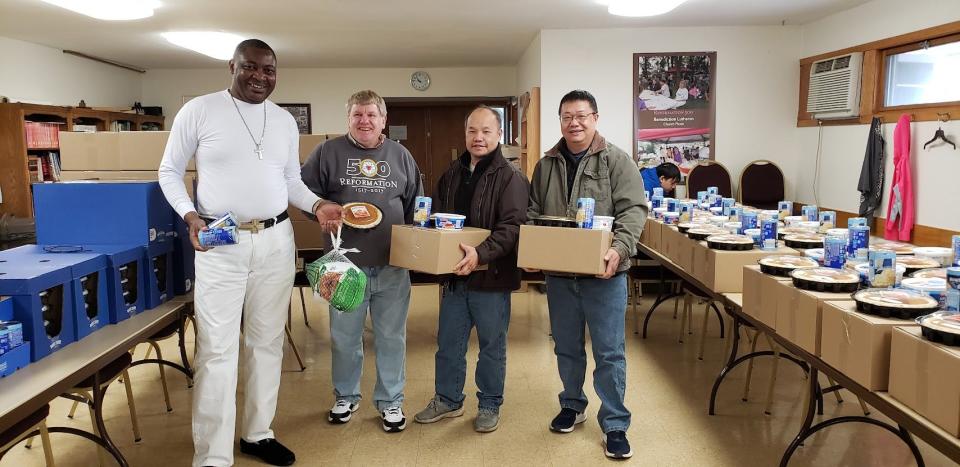
Benediction's umbrella expanded further in 2006, when Gui’s Congolese congregation outgrew its previous home. Hougard welcomed them in. The African ministry now counts about 200 people, with many from the Congo and others from Rwanda, Burundi and elsewhere. Today, it is officially an independent church, but it is still based at, and affiliated with, Benediction.
A plaque in the church's entryway proclaims, “Benediction: Four Languages, One Faith,” displaying a prayer in English, German, Hmong and French. Benediction has embraced its multicultural mission, offering English as a Second Language classes, high school equivalency training and citizenship.
Some church functions are separated by language, like Sunday services, weddings and Bible studies. But other times, the ethnic ministries work together, handing out Thanksgiving dinners and Christmas gifts and hosting summer picnics.
Sometimes norms on organization, timeliness and communication are a challenge. But members work through it.
“Our diversity has actually made us stronger in many respects,” Hougard said. “Each group lends something to the congregation.”
Once a refugee, she now teaches language and life skills
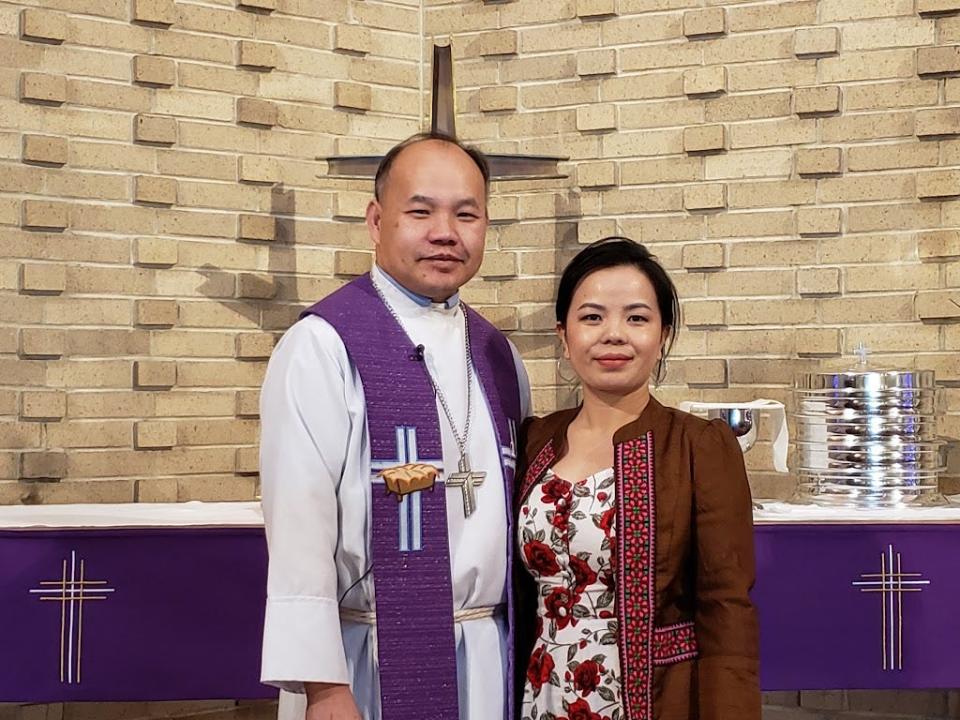
Kou Thao, the wife of Hmong pastor Moua Vang, teaches ESL classes for new immigrants, leads youth programming and organizes church events.
Thao was born and raised in a refugee camp in Thailand, where her parents had fled from Laos. In 2000, when she was 15, Thao and her family resettled in Green Bay, part of a wave of Hmong refugees who settled largely in Wisconsin, Minnesota and California. The Hmong faced not just culture shock, but discrimination and poverty.
Although many received support from local sponsors, they weren't necessarily welcomed by Wisconsin residents, who feared their way of life was slipping away. In 2014, Robert Mentzer, who was the Wausau Daily Herald opinion editor at the time, wrote that those fears never came true, and the Hmong had adjusted well to life in Wisconsin:
“Two decades later, it is clear that Hmong Americans have followed exactly the path of German or Polish immigrants in the early 20th century: A sometimes-rocky transition and an older generation that is not terribly assimilated, followed by a bootstrapping generation of workers whose kids are Americans.”
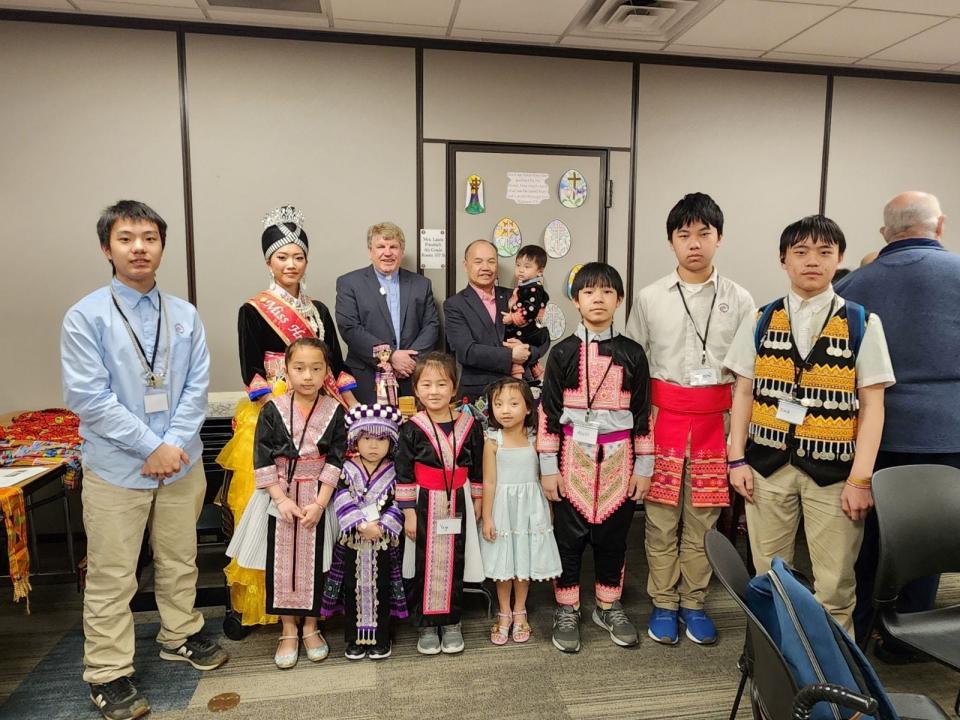
Today, Wisconsin has the third-largest population of Hmong in the U.S. About 13,600 Hmong live in Milwaukee County, according to census data. They make up nearly one-third of all Asian residents in the county.
Since the initial wave, Hmong have continued to settle in Milwaukee. Thao, a mother of five boys who holds three jobs, devotes so much time to helping newcomers feel settled because she understands how disorienting and lonely it can be without help.
Thao's teenage years in Green Bay were tough, she said. As the oldest child, she “had to be the adult” in the family, translating important documents from English, interpreting for her parents in meetings with caseworkers, and driving the family around town to stores and appointments.
“I had no choice,” she said. “I had to know everything.”
She imparts more than just English-language skills to her students. She tells them: You need to look people in the eyes when you speak to them. You need to project confidence and defend yourself. You should list all your skills on your job application, and tell employers about your abilities in interviews.
As a teen, Thao found it hard to shake Hmong cultural norms that taught her it was important to be reserved and humble, and not to speak up.
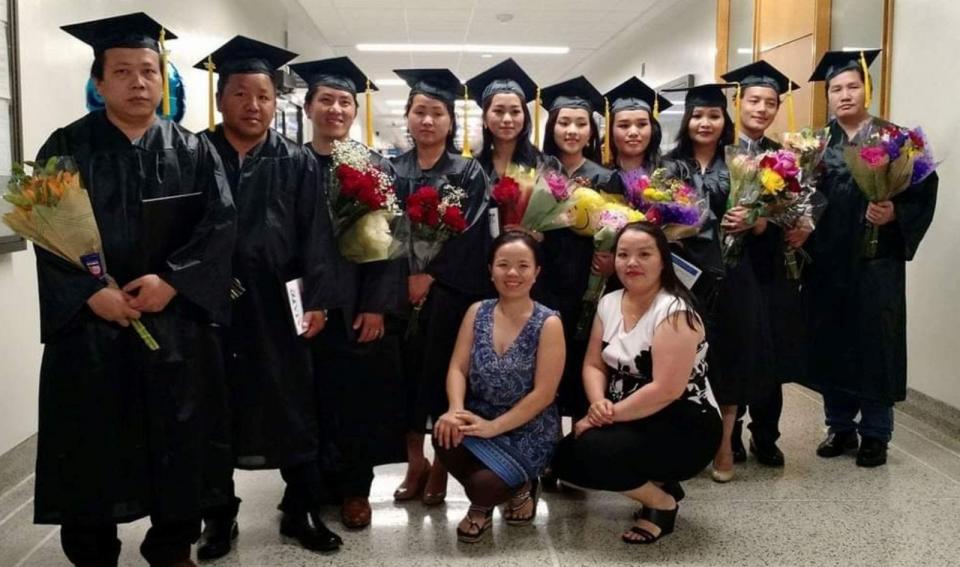
She has been proud to see her former students finding success and independence, earning degrees and starting businesses.
More broadly, Thao has watched with joy as Milwaukee’s Hmong community has blossomed. Families have moved to bigger homes; children have gone to college, and landed work in law, education, health care and more.
“I’m just so fascinated to see our new generation rising up to become somebody" the Hmong community never imagined, Thao said.
At the same time, the concern now — and it's shared among older immigrants regardless of nationality — is that culture and traditions fade as younger people become more Americanized. Thao and Vang’s own sons don’t like to speak Hmong.
So, in addition to English classes for new immigrants, Thao recently started leading Hmong-language lessons for kids.
Church has become a vessel to help newcomers
Gui similarly fell into the work of serving his community. In the Democratic Republic of the Congo, he studied accounting and worked for the central bank. He and his family fled during the civil war because his father-in-law’s position as a general put them in danger.
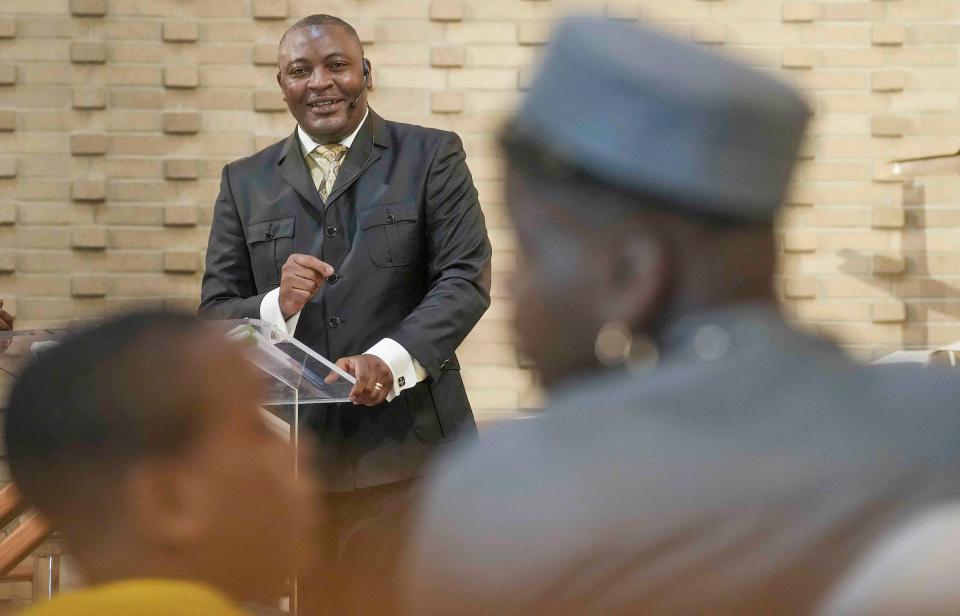
Gui found work at an Illinois factory manufacturing plastic Solo cups, then at a printing company in Milwaukee. As he and fellow Congolese immigrants gathered at each others’ homes each Sunday to worship in French, the call to lead the community as its pastor became apparent.
As the congregation grew and eventually joined Benediction, Gui became the go-to person for newcomers.
A sizable portion has won the diversity visa program, also known as the green card lottery. Each year it provides 50,000 green cards — granting legal, permanent residency — to people from countries with low levels of immigration to the U.S.
Many from the Democratic Republic of the Congo, one of the five poorest countries in the world, see winning the lottery as a remarkable opportunity. More than 600,000 lottery applications came from the Congo in the 2021 fiscal year, the most of any country in the world.
Unlike people who are resettled by refugee agencies, those who arrive through the green card lottery don’t receive government aid in their first months in the U.S. They often arrive with few resources.
“When people are coming, they don’t know where to start,” Gui said.
Sometimes, O'Hare airport police officers call him to say a family has been waiting for a ride that never came, or has nowhere to go. Could he come get them?
The transition to life in the U.S. can be frustrating and confusing, Gui said, especially for people without English proficiency. When a family of six from Rwanda arrived in Milwaukee recently, they didn’t have a place to stay or any jobs lined up. Gui’s congregation helped with rent and food for three months, and now, the family is doing “very well,” he said. They pay rent themselves and have purchased two cars.
“When you see people that you help from nothing become somebody,” Gui said, “you can see the joy of serving people.”
Recently a Congolese woman left her husband and children in Africa and flew to Brazil, taking buses to the U.S.-Mexico border. When she crossed the Rio Grande and border agents apprehended her, she gave them the name of a family in the Benediction congregation and was flown to Milwaukee.
The Milwaukee family didn’t know the Congolese woman, but they took her in and have continued to host her.
“God uses us as a vessel to help them,” Gui said.
The church’s welcoming culture is evident at the end of each Sunday service, when anyone who has just arrived in the U.S. is invited to the front for a blessing.
One Sunday in early September, a man from Angola got up to share his story. There was a brief scramble to find someone who could help translate from his native Portuguese to French. Then, he explained he was in Milwaukee with his young daughter, but his wife got left behind during the journey.
Now that he’s with the church, a member told him, he will forever be with the church.
When the service ended, families lingered among the pews, hugging and talking animatedly. Some dressed in traditional attire; others in Western styles. Children, unable to stand still, headed outside to play tag and burn off energy.
The families had left home in search of better lives. Here at this little Milwaukee church, they’d found home once again.
This project is supported by a grant from Marquette University Law School's Lubar Center for Public Policy Research and Civic Education, to make possible journalism on issues of importance to the Milwaukee area. All the work was done under the guidance of Journal Sentinel editors.
This article originally appeared on Milwaukee Journal Sentinel: Metro Milwaukee needs global wave of immigrants to grow, prosper

